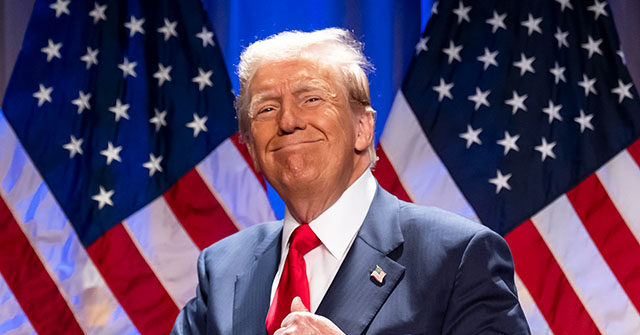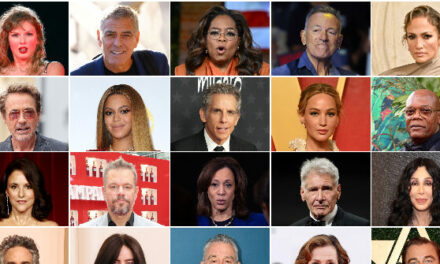We support our Publishers and Content Creators. You can view this story on their website by CLICKING HERE.

Donald Trump’s vow to dismantle the censorship cartel of “misinformation” researchers, media blacklisters like NewsGuard, and Big Tech has sent shivers through the academic community that has dedicated itself to censoring conservatives.
The Financial Times reports that since Donald Trump’s election victory, researchers and academics who study alleged digital “misinformation” are growing increasingly worried that the new administration will follow through on campaign threats to crack down on their work. During the campaign, Trump said he would seek to curb federal funding to universities found to have engaged in censorship activities like flagging conservative social media content for removal.
The seriousness of Trump’s intentions has been underscored by his pick of Brendan Carr, a Republican FCC commissioner and vocal critic of Big Tech censorship, to chair the agency. Trump’s anti-censorship crusade has also garnered public support from Silicon Valley figures like venture capitalist Marc Andreessen and Twitter owner Elon Musk.
“I think it will be just a tsunami of critiques and witch hunts,” warned Megan Squire, deputy director for data analytics at the left-wing Southern Poverty Law Center. “I suspect some people in academia where you get to choose your research will self-censor or soften their research, or shift their application area.”
Some misinformation researchers say they fear for their jobs and research funding if Trump follows through on his threats. “I’m pretty fucking scared,” said one professor who studies the field, speaking anonymously due to fears of retribution. “If this stuff happens, I will be on a plane [out of America].”
Trump and allies like Musk argue the misinformation field has enabled the government, academia, blacklist organizations like NewsGuard, and tech companies to collude to suppress conservative speech under the guise of combating fake news. “Every participant in the orchestrated government-university-non-profit-company censorship machine of the last decade can be charged criminally,” venture capitalist Marc Andreessen alleged on X.
Trump has also floated revising Section 230, the law shielding internet platforms from liability over user content, to “get platforms out of censorship business.” While tech companies resisted Trump’s efforts to weaken the law during his first term, some experts believe he now has more time and allied personnel in place to see it through.
At the same time, platforms themselves seem eager to avoid the political crossfire over online information, deemphasizing it and keeping a lower profile on the issue compared to the 2020 election. Yet researchers worry that even if the companies step back, Trump’s threats alone could pressure universities, funders and individual academics to self-censor their work on combating digital falsehoods.
“It’s an existential threat to my livelihood and [our] research funding,” another anonymous misinformation researcher said. Despite the fears, experts insist that studying the online information ecosystem remains vital at a time when foreign adversaries continue to launch influence operations targeting the U.S. But with the Trump administration putting both researchers and tech companies on notice, the future of the field suddenly looks far more precarious.
Read more at the Financial Times here.
Lucas Nolan is a reporter for Breitbart News covering issues of free speech and online censorship.

 Conservative
Conservative  Search
Search Trending
Trending Current News
Current News 







